Royal Air Force strikes have hit Islamic State 1,340 times in Iraq and 262 times in Syria since 2014, say officials.
So-called Islamic State, or ‘Daesh’, fighters are being pinned down by the Royal Air Force in their former stronghold of Raqqa say the Ministry of Defence as the UK marks three years of tackling the barbaric cult in Iraq and Syria.
Royal Air Force aircraft destroyed 17 targets in Syria in a single day last week as the air campaign intensifies, forcing Daesh to splinter and retreat from areas it ruled when the UK voted to begin air strikes in September 2014.
British aircraft have struck Daesh 1,340 times in Iraq and 262 times in Syria. In that time the group has lost territory, finances, leaders and fighters as the 73-member coalition has liberated cities in both countries.
Defence Secretary, Sir Michael Fallon, said:
“Britain has made a major contribution to the campaign that has crippled Daesh since 2014, forcing this miserable cult from the gates of Baghdad to the brink of defeat in Raqqa. By air, land and sea UK personnel have played a tireless role in striking targets and training allies.
As the second largest contributor to the Global Coalition’s military campaign, the UK has flown more than 8,000 sorties with Tornado and Typhoon jets and Reaper drones, providing strikes, surveillance and reconnaissance, refuelling and transport.”
Since 2014 the UK has hit Daesh with over 1,500 strikes, bombarding targets including heavy machine-gun positions, truck-bombs, mortar teams, snipers and weapons stores.
RAF Typhoons, Tornados and Reapers have hounded Daesh day and night, striking from Raqqa and Dayr az Zawr in Syria to Qayyarah and Al Qaim in Iraq.
Air Chief Marshal, Sir Stephen Hillier, said:
“This has been an immense effort by RAF airmen and airwomen over the last three years of continued operations, countering Da’esh in Iraq and Syria. However, the tempo continues with RAF aircraft destroying 17 targets in Syria in a single day last week.”
Three years ago Daesh was barely an hour from the gates of Baghdad, but today it has lost more than 73 per cent of the territory it occupied in Iraq and 65 per cent of its former territory in Syria. say officials.


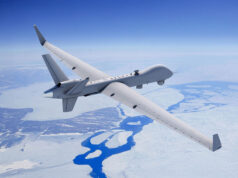



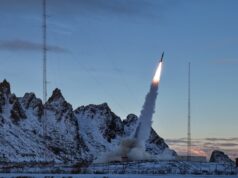
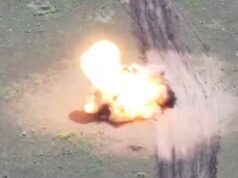

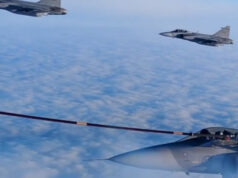
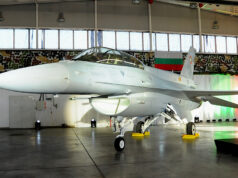
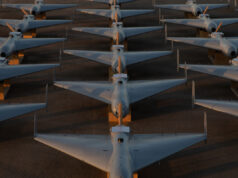

A job well done I think! three cheers for the men and women of the RAF!
Flogging the fleet to bits, and for what?
There seems to be more sorties than jihadis.
More sorties = Less jihadis
Says who?
2 years ago the CIA said there were no more than 30k ISIS fighters.
3 years & nearly 100,000 sorties later they are still kicking.
Meanwhile the government say that there are 23,000 in the UK who are happy to go about their business.
I am open to someone showing me the empirical evidence that jihad is any less prevalent after adding 8,000 sorties to the RAF’s modest fleet.
8,000 sorties later combined with the US’s air campaign have allowed ISIS to be beaten back. Before the campaign started large parts of Iraq and Syria were lost. Now they are mostly recaptured, and ISIS has 6 months at the most left before it loses all its territory.
The continued air campaign has targeted leadership, manpower, equipment, infrastructure and income. One sortie does not always mean 1 less jihadi. The the enemy are among the civilian population and can easily blend in if needed, making it hard to determine and target personnel unless they are obviously overt.
I think we can and should be proud and grateful to the RAF for their contribution to the fight against Islamic State. The high number of sorties shows that the UK has once again done more than its fair share, when others have not. The RAF is constrained by strict rules of engagement and the use of only smart weapons to minimise the risk to civilians. Imagine the furore if we followed the Russian example of lax rules of engagement and iron bombs from organisations and individuals inside and outside Parliament who are happy and anxious to berate and sneer at our contribution to this and every other military operation we are involved in, while simultaneously giving our enemies a free ride. Whatever one may think of how this and previous governments have treated our armed forces, the RAF, Royal Navy and Army do a magnificent job on our behalf and I, for one, am immensely proud and grateful to them for being willing to put their lives on the line. To misquote Orwell (though possibly not the original source): “We sleep peacefully in our beds at night only because rough men stand ready to do violence on our behalf.”
We should have recognised at the start that this would be a long task and that hitting IS with fast jets supported by AAR aircraft was over the top and more expensive than necessary. The cost in fuel and bombs/missiles plus a lot of airframe life and maintenance and support costs is huge. We should have gone done the Predator + LMM route. Less cost and less damage for us to pay for later on.
Some other contributions to the fight.
Operation OKRA is the ADF’s involvement in the international effort to combat the Daesh terrorist threat in Iraq and Syria with around 400 personnel assigned to the RAAF’s Air Task Group.
As at August 2017 the RAAF’s Air Task Group have dropped in excess of 2,160 munitions from approximately 2,470 Hornet sorties, supported by 1072 KC-30A tanker sorties transferring over 75 million pounds of fuel and 364 E-7A-Wedgetail sorties conducting control of all coalition air operations in the battlespace.’
A not too shabby effort from a small airforce especially when you consider that the RAAF sorties from its base in the UAE are typically significantly longer than RAF sorties out of Akotiri. Mosul is just over 900 kilometres from Akotiri compared to more than 1700 kilometres from the Minhad air force base in the UAE. Syrian targets are both closer for the RAF and further again for the RAAF.